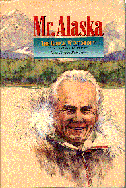|
TRIBAL TOURISM BROUGHT TO CONGRESS
June 26, 2014
Earlier this week, tourism leaders from across the country
met in Washington to reinforce to Congress the strength and
importance of the travel and tourism industry, focusing on
tribal tourism.
The Southeast Tourism Society Congressional Summit, staged
in partnership with the American Indian Alaska Native
Tourism Association (AIANTA) and the National Tour
Association (NTA), brought to light the significance the
travel and tourism industry makes to national and local
communities.
Discussions included topics such as the National Park
Service and its 2016 centennial, national transportation
policy and reauthorisation of Brand USA.
One of the most significant discussions to Indian Country
during the summit was the national transportation policy,
which resulted in AIANTA promising to play a central role in
pushing the policy forward.
AIANTA Executive Director Camille Ferguson said at the
Summit, we will focus on more than just basic roads,
programs like Scenic Byways, Rails to Trails, bike paths,
roads on federal lands, and the Bureau of Indian Affairs’
tourism program are significant moving forward.
“Transportation is an issue of critical importance to Indian
Country and to communities, large and small, across the
country, on behalf of AIANTA, we are excited to play a
central role in in this important discussion,” Ms Ferguson
said.
Source = ETB News: Lewis Wiseman
Anchorage
Civic & Convention Center
Update
Anchorage:
Gateway to the Alaska Panhandle, North Pacific,
Canada's Yukon and Russian
Siberia
Historical
Flashback
 Anchorage
Area: The
first settlers arrived in the area around 4,000 BC.
They were descended from tribes who first migrated
across the land bridge from Siberia over 29,000
years ago. Anchorage
Area: The
first settlers arrived in the area around 4,000 BC.
They were descended from tribes who first migrated
across the land bridge from Siberia over 29,000
years ago.
• Russian trappers and hunters land in search
of furs and trade in the mid-1700s.
•
Captain James Cook's search for the Northwest
Passage in 1778 led him to explore the waterway
that now borders downtown Anchorage.
•
Across Cook Inlet from Anchorage, near Knik, the
first Russian mission was established (1835). Some
32 years later, Russia sells its North American
territories to the USA (1867) through the efforts
of William Seward, Secretary of State, for $7.2
million (2 cents an acre).
•
Prospectors strike gold in 1882 at Crow Creek near
Girdwood, 40 miles south of Anchorage.
• Alaska's population in the 1900 census is
listed at 29,500 Eskimos, Indians and Aleuts; 4,300
Alaskan Caucasians and 26,000 newcomers.
 •
Congress authorizes the construction of the Alaska
Railroad in 1914, being the only U.S. government
owned railroad in history. Anchorage was selected
as its headquarters, attracting thousands to the
area, where a land auction shaped the future of the
city. In late 1918, the first train from Seward
reached Anchorage. Anchorage was incorporated on
November 23, 1920 •
Congress authorizes the construction of the Alaska
Railroad in 1914, being the only U.S. government
owned railroad in history. Anchorage was selected
as its headquarters, attracting thousands to the
area, where a land auction shaped the future of the
city. In late 1918, the first train from Seward
reached Anchorage. Anchorage was incorporated on
November 23, 1920
•
Growth of agriculture: Federal support of the
Matanuska Valley Project of 1935 brings over 200
families from the drought-ravaged Midwest to that
fertile valley north of Anchorage.
• Military: Anchorage's strategic position
attracts military interest, and in June, 1940, the
first U.S. soldiers arrive to build Fort Richardson
army base and Elmendorf Air Force Base. Japanese
invasion of Alaska's Aleutian Islands in 1942,
sparks construction of the Alaska Highway.
During
the war years the population grows from 7,724 to
43,314.
• International Airport opens in 1951, with
transpolar flights to Europe and Asia. Anchorage
adopts the term "Air Crossroads of the World."
• Oil is discovered in 1957 at Swanson River
on Kenai Peninsula.
• Alaska becomes the 49th state in 1959, when
President Dwight Eisenhower signs the
Statehood.
• Anchorage and South Central Alaska ravaged
by the largest earthquake ever recorded in North
America (9.2).
• Oil discovered at Prudhoe Bay on the North
Slope of Alaska in 1968, leading to the 800-mile
Trans-Alaska Pipeline in 1974. This activity
creates a boom, as oil and construction firms set
up headquarters.
• The first "Iditarod" Sled Dog Race starts in
March, 1973 from Anchorage.
• Anchorage is selected by the United States
Olympic Committee as its choice to host the 1992
Winter Olympic Games, the same year as Alaska
celebrates the Alaska Highway's 50th
anniversary.
Airport
and Flight Information
Profiles
of Anchorage International Airport, Merrill Field,
Fairbanks International and Juneau International
airports to come.
Anchorage
Convention/Visitors Bureau
524 West Fourth Avenue
Anchorage, AK 99501-2212
Phone:1-907-257-2310
Phone:1-907-276-4118
Fax:1-907-278-5559
Toll Free: 800.478.1255
Email: info@anchorage.net
http://www.anchorage.net/index
.....[Top
of page]
[Send
mail]
[Home]
|